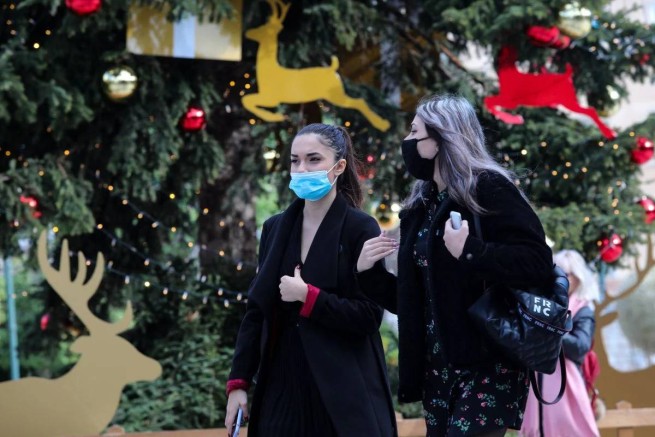The “explosive” cocktail of flu, viruses and Covid-19 cases created over the holidays has already led to a 30% increase in hospitalizations.
This is a concern for experts as the holiday season is still underway, meaning commuting and overcrowding will increase.
In addition, the emerging mutation of the coronavirus JN.1 appears to be the cause of a number of infections. “The ongoing development of JN.1 suggests that it either more contagious or better able to evade our immune system’s defenses“, the Centers for Disease Control and Prevention (CDC) said in the past few days.
As reported by iEidiseis, the numbers are inexorable and leave no room for relaxation and reckless optimism regarding the JN.1 coronavirus subvariant. WITH updated vaccine against SARS-CoV-2 and 20% of those expected to be vaccinated, yet over the past week the NHS has recorded 200 Covid-19 hospital admissions and only 150 discharges per day. This means that the number people hospitalized with this disease are increasing by 50 every day.
There are currently 1,390 single beds occupied in hospitals and about 260 in intensive care units. At the same time, 68 patients were intubated. Taking into account these data, the recommendation of the Ministry of Health Committee on mandatory use of masks in hospitals by workers and visitors, and vaccination of vulnerable groups is at least prudent, given that we still have a week of celebrations, meetings and parties ahead of us.
At the same time, anyone who uses buses and subways can confirm that even during the lunchtime rush hour, when there is pandemonium, one in four or five people are wearing a mask, and half of the passengers are coughing. The commission recommends using a mask in these cases, but many do not heed the warnings of doctors.
Given the pre-holiday rush, when the number of trips and crowds increases significantly, experts emphasize that especially those who belong to high-risk groups should use a mask, for example, on public transport, indoor spaces (shops, taverns), and also during visiting medical facilities to protect yourself. Although, as emphasized, this is not mandatory, it is considered a good reasonable precaution.
At the same time, experts recommend observing protective measures, using antiviral drugs where considered necessary and vaccinating against coronavirus.
Different strains of Covid may have different symptoms, however the differences are minor. “The types of symptoms and their severity usually depend more on a person’s immunity and overall health than which particular variant is causing the infection,” experts say. New data from UK health authorities, where Covid and flu trends are rising, highlighted a number of common symptomsresulting from an outbreak of respiratory infections this winter. Among them:
- Runny nose (31.1%)
- Cough (22.9%)
- Headache (20.1%)
- Weakness or fatigue (19.6%)
- Muscle pain (15.8%)
- Sore throat (13.2%)
- Difficulty sleeping (10.8%)
- Anxiety or stress (10.5%).
Loss of taste and/or smell was one of the most common Covid symptoms when the virus first emerged. Another change that scientists noticed is gradual reduction of the incubation period — the length of time it takes people to become ill after exposure to the virus. A study published by the CDC by authors from Japan and Singapore earlier this year found that the incubation period could be reduced to an average of two to three days.
According to the Panhellenic Federation of Public Hospital Workers (POEDIN), an increase in emergency department visits has even resulted in patient wait times exceeding 8 hours.
Mr. Yiannakos notes that in the country’s hospitals, 1,027 patients with coronavirus are being treated in the country’s existing 2,443 beds. There are 12 patients hospitalized in intensive care units out of 40 intensive care beds available for COVID-19 patients.
There are currently 170 ICU beds in total, which the system leases from the private sector. Of the 1,069 ICU beds, 868 are reported to be occupied and 201 beds are empty.







More Stories
Greece lifts all protective measures against Covid-19
AstraZeneca admitted that its Covid-19 vaccine… kills
Shocking report from Japanese scientists: “Cancer deaths increase sharply after mass Covid vaccination”